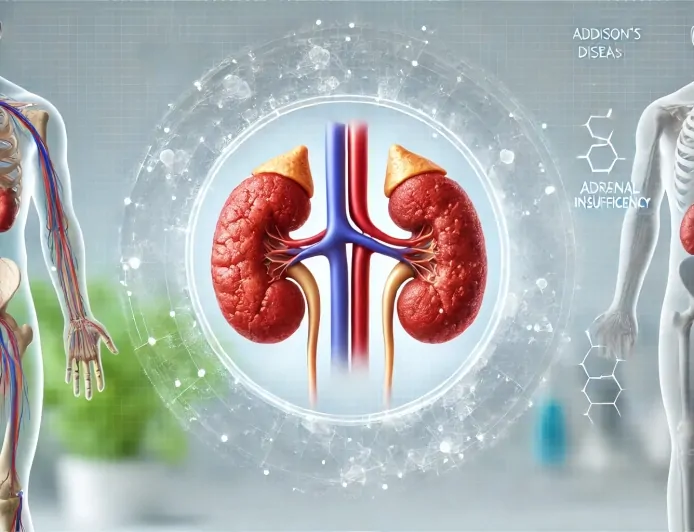Addison's Disease: What is it, Causes, Symptoms, Diagnosis, and Treatment
Addison's disease is a rare but serious disorder affecting the adrenal glands. Learn what it is, its causes, symptoms, diagnosis, and treatment options.

Addison's Disease: Causes, Symptoms, Diagnosis, and Treatment
What is Addison's Disease?
Addison's disease, also known as primary adrenal insufficiency, is a rare but serious disorder where the adrenal glands do not produce enough hormones. The adrenal glands, located above the kidneys, produce essential hormones such as cortisol and aldosterone, which regulate metabolism, blood pressure, and stress response.
Types of Addison's Disease
There are two primary types of Addison’s disease:
- Primary adrenal insufficiency: This occurs when the adrenal glands are damaged and fail to produce sufficient hormones.
- Secondary adrenal insufficiency: This results from a problem with the pituitary gland, which fails to signal the adrenal glands to release hormones.
What Causes Addison's Disease?
Several factors can cause Addison’s disease, including:
- Autoimmune disorders: The immune system mistakenly attacks the adrenal glands.
- Infections: Tuberculosis, HIV, and fungal infections can damage the adrenal glands.
- Genetic factors: Some individuals inherit a predisposition to adrenal insufficiency.
- Cancer: Adrenal cancer can lead to hormone deficiency.
Who is Affected by Addison's Disease?
Addison's disease can affect anyone, but certain groups are at higher risk:
- Individuals with autoimmune diseases such as type 1 diabetes or thyroid disorders.
- People with a family history of adrenal insufficiency.
- Patients who have had infections like tuberculosis or HIV.
Symptoms of Addison's Disease
Common symptoms include:
- Fatigue and weakness
- Unintentional weight loss
- Darkening of the skin (hyperpigmentation)
- Low blood pressure and dizziness
- Nausea, vomiting, and abdominal pain
- Salt cravings
- Depression and mood changes
How is Addison's Disease Diagnosed?
Doctors diagnose Addison’s disease through a combination of tests, including:
- Blood tests: Measure cortisol, sodium, and potassium levels.
- ACTH stimulation test: Evaluates how the adrenal glands respond to adrenocorticotropic hormone.
- Imaging tests: CT or MRI scans can detect adrenal gland abnormalities.
How is Addison's Disease Treated?
Treatment focuses on hormone replacement therapy:
- Hydrocortisone or prednisone: Replaces cortisol.
- Fludrocortisone: Maintains sodium and potassium balance.
- Emergency treatment: Patients must carry an emergency corticosteroid injection for adrenal crises.
Frequently Asked Questions about Addison's Disease
Is Addison's disease life-threatening?
Without treatment, Addison’s disease can be fatal, especially if an adrenal crisis occurs.
Can Addison's disease be cured?
No, but with proper hormone replacement therapy, patients can manage the condition effectively.
How common is Addison’s disease?
Addison’s disease is rare, affecting about 1 in 100,000 people worldwide.












